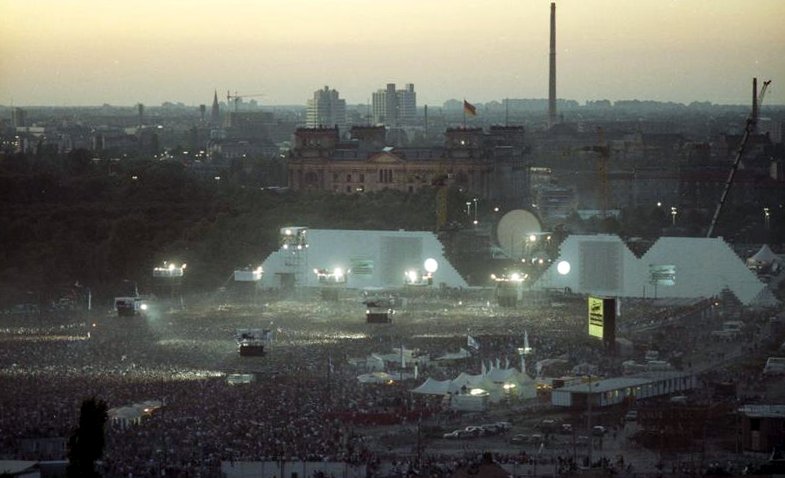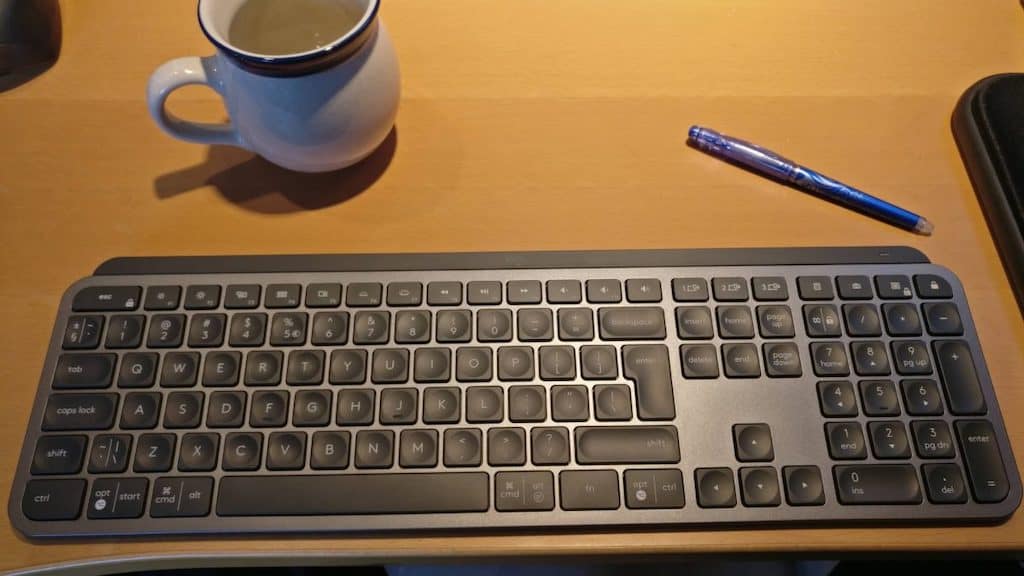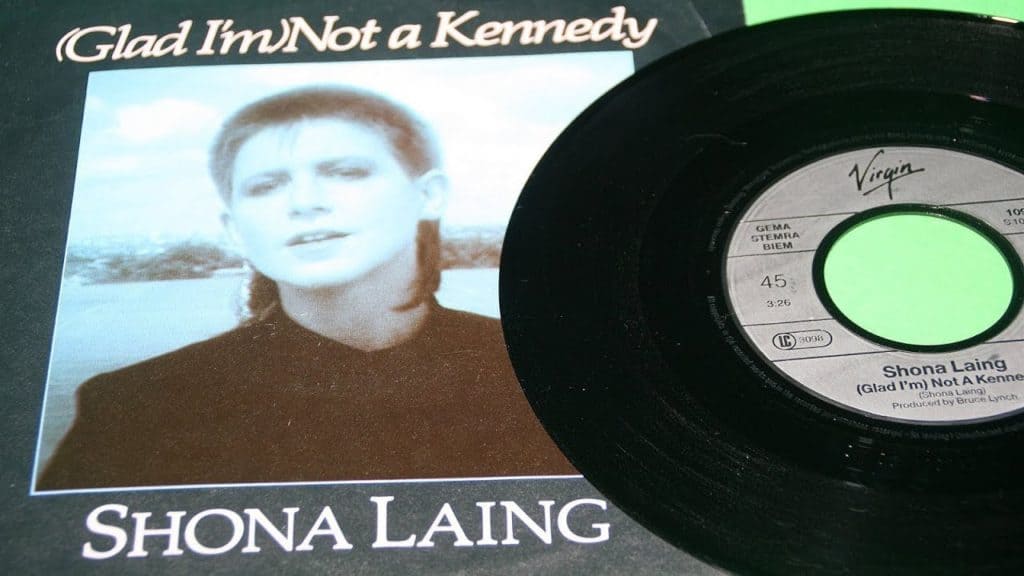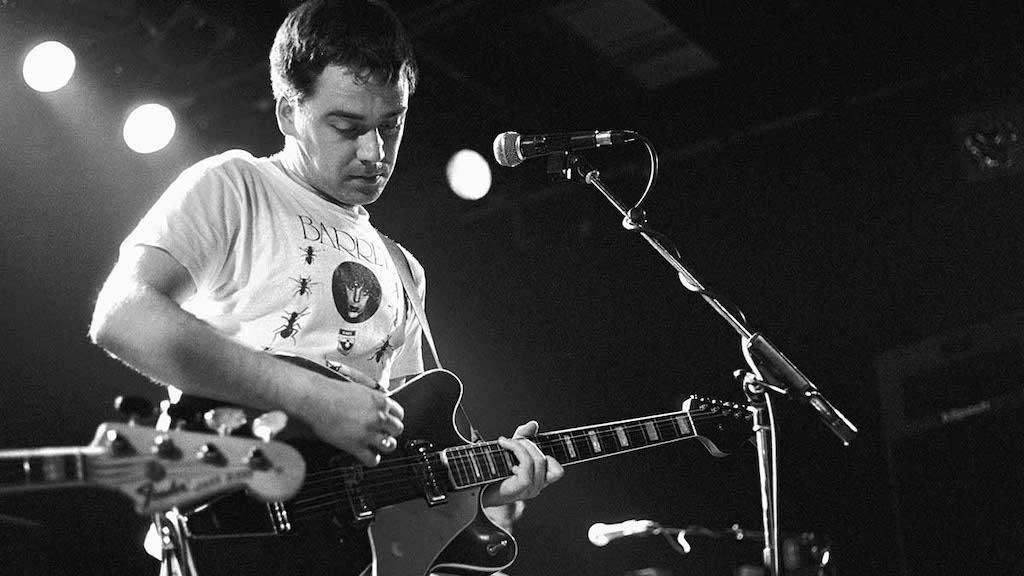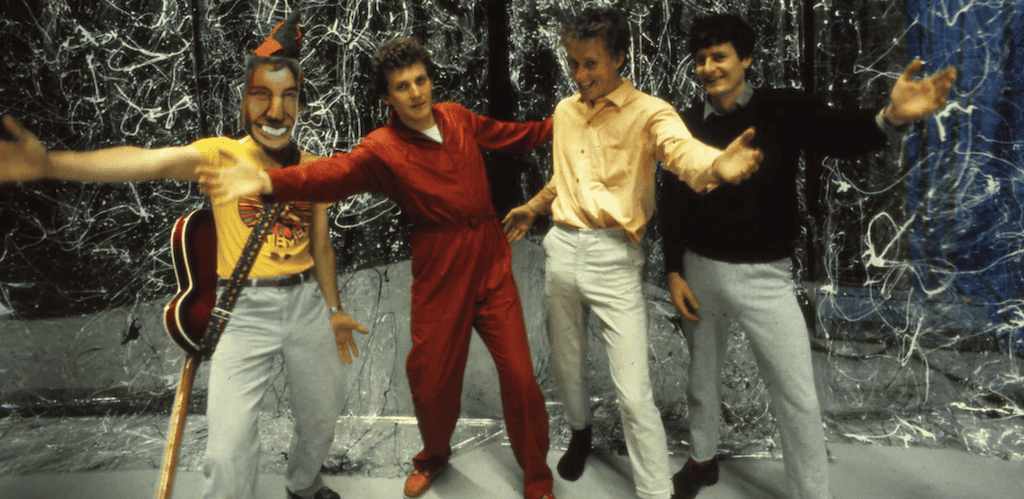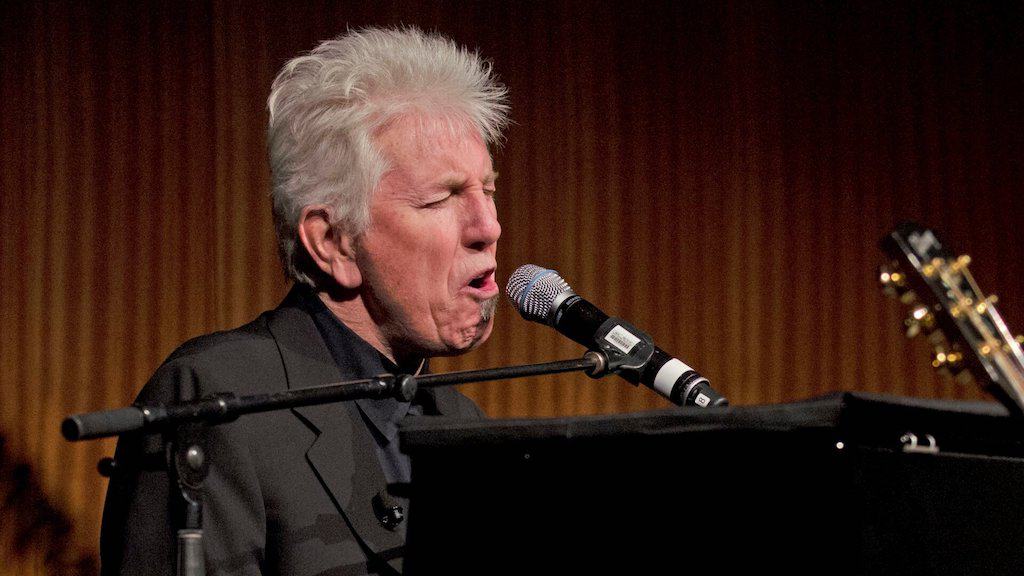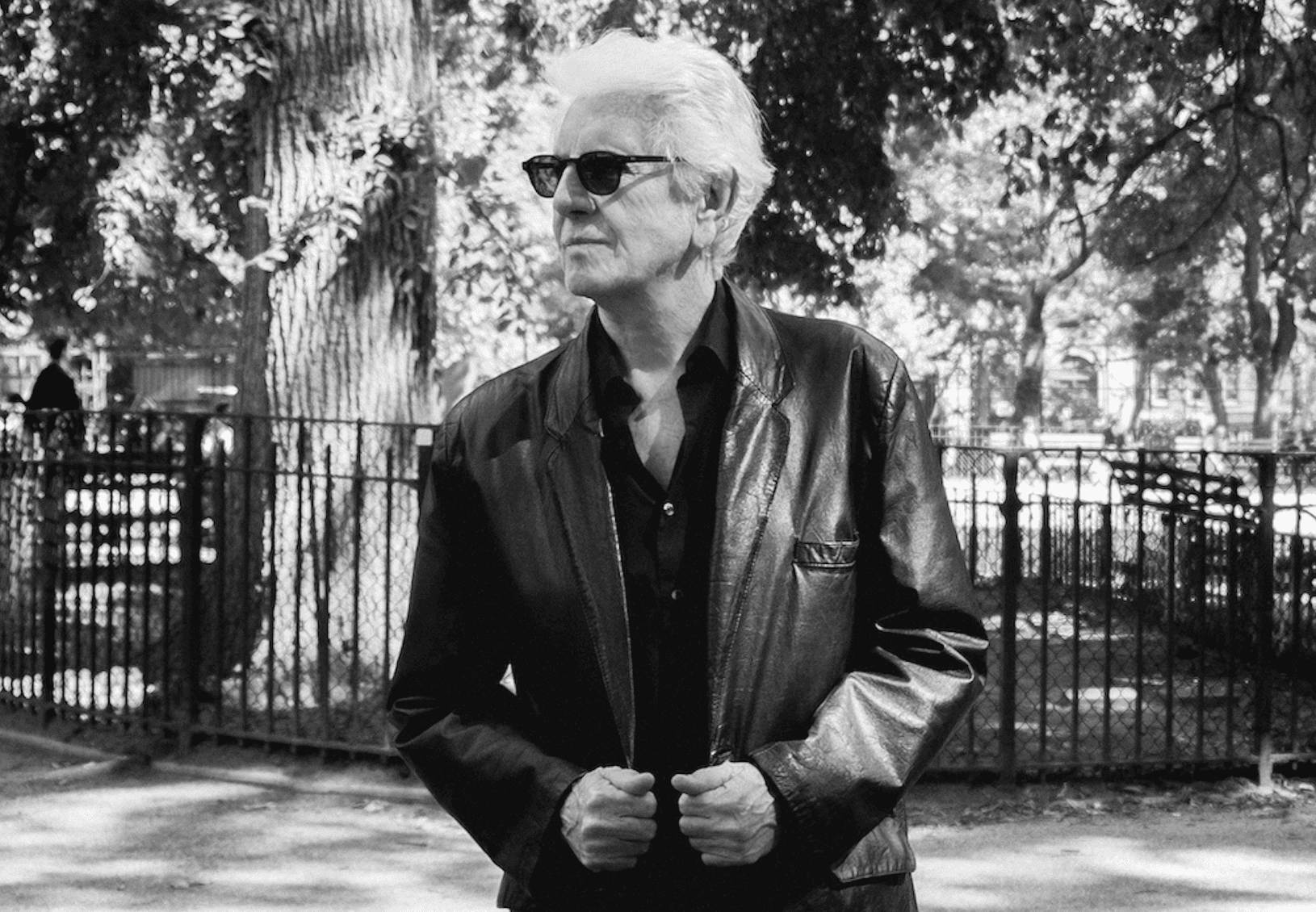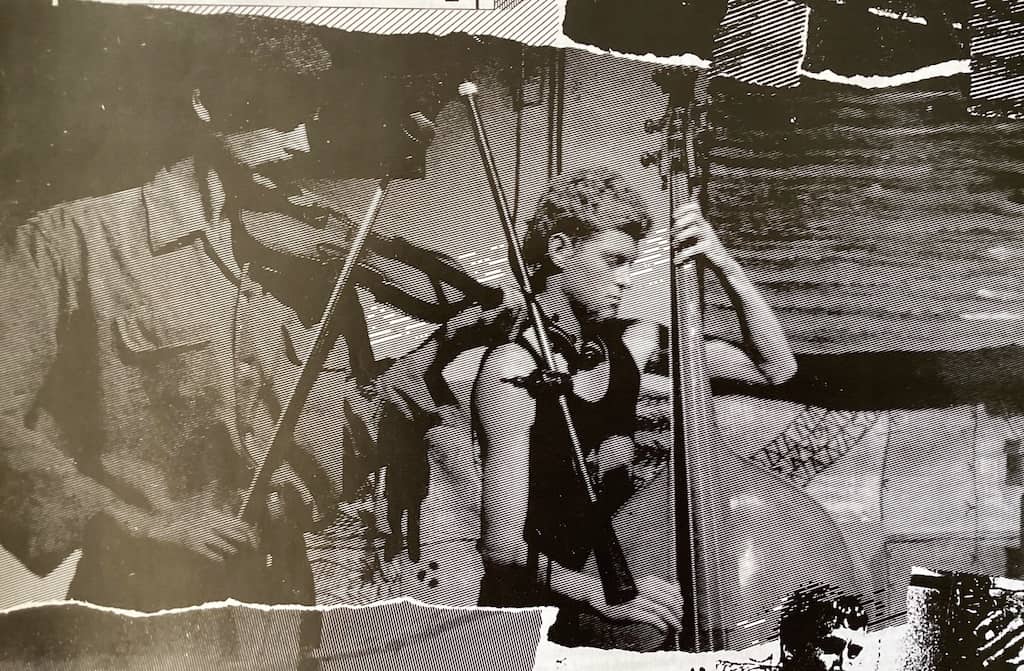Berliners were busy tearing their wall down when musician Roger Waters arrived and built an even bigger one. His massive rock extravaganza The Wall hit Berlin on July 21, 1990. Gary Steel was there.
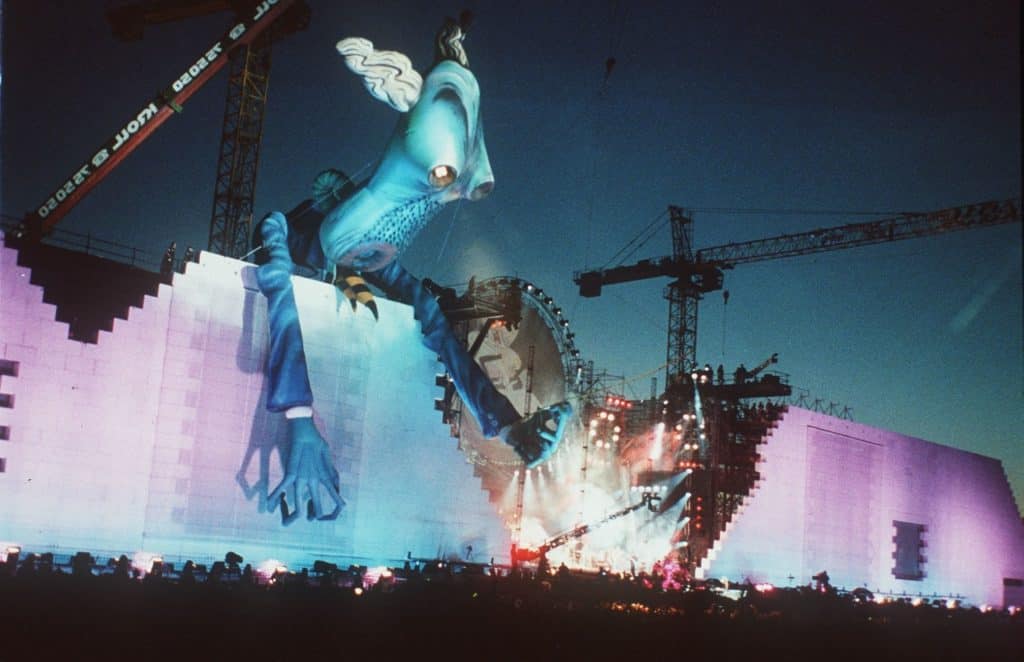
GROUP CAPTAIN Leonard Cheshire, VC, OM, DSO, DFC, 72 – the RAF’s most decorated bomber pilot – can now add RS to his list of accomplishments: Rock Star. On July 21, in Berlin’s Potsdamer Platz, Cheshire blew his squadron whistle to signal the beginning of a monumental staging of The Wall, the Pink Floyd/Roger Waters 1979 rock “classic”. It was billed “The show to end all shows!” “The biggest production ever staged, on the biggest stage!”
Following his wartime exploits – Cheshire survived more than 100 bombing missions – he returned to England and devoted his life to setting up homes for the disabled. There are now 265 Cheshire homes in 48 countries around the world. He subsequently launched the Memorial Fund for Disaster Relief – now all he had to do was think of some way to get the money rolling in…
Several years ago, legend has it, erstwhile Pink Floyd member Roger Waters told a US DJ he would never play The Wall again, unless the Berlin Wall came down. Fat chance. When Cheshire’s organisation approached Waters last October to stage The Wall as a worldwide launch for the Memorial Fund, the Wall was still standing.
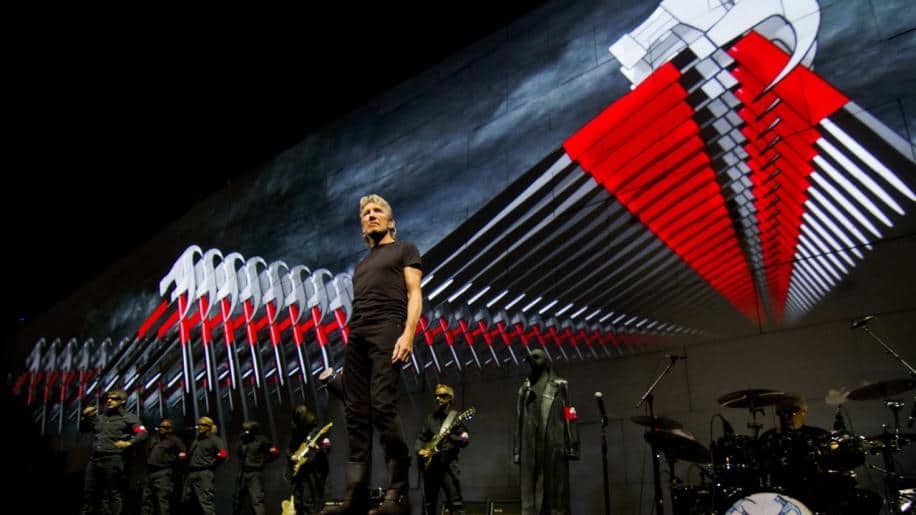
Waters’ phone ran red-hot on November 10. First news of the impending demise of the Wall and the unification of Germany had come through on the night of the ninth. Intensive planning began immediately. Shucks, when a monument to fascism goes down, then you’ve gotta think about some serious partying! Get the entertainers in!
It must have been a godsend for Waters, who was without a record contract at the time.
By the end of the year, a site had been found and permission granted to stage The Wall at Potsdamer Platz, in the shadow of the Brandenberg Gate between East and West in a no-man’s land that had been sealed off for more than three decades.
First, the mines and grenades had to be removed. During preparation, producer Mick Worwood found an untouched World War II bunker, directly under where the concert-goers would be standing. “There was furniture, clothing, ammunition. We found 100 rounds of ammunition and this whole room of paintings depicting SS scenes of them winning against Great Britain,” said Worwood.
The logistics were frightening, and as the date approached everything seemed to get bigger and bigger. The stage would be 168 metres long, 41 metres deep, and at the highest point, 25 metres high. There would be a huge circular screen showing back-projected film images. The puppets would be so large – as tall as a six-storey building! – they would have to be operated by two 45-metre cranes with 20 people controlling them. It would take more than 100 trucks to transport the set onto the site, and the stage would take over a month to build!
The last announcement was the all-star cast list. Van Morrison, Joni Mitchell, Cyndi Lauper, Tim Curry, Jerry Hall, Albert Finney, Sinead O’Connor, Thomas Dolby, Marianne Faithfull, Bryan Adams, the Band, the Scorpions, the Chieftains and James Galway would all contribute, not to forget the Soviet Military Marching Band, and the Rundfunk Orchestra and Choir of East Berlin!
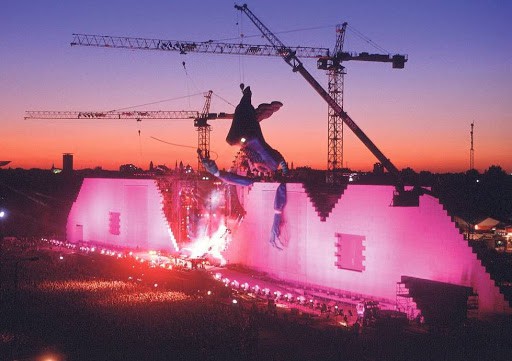 “IF THIS concert is to celebrate anything, it’s that the Berlin Wall coming down can be seen as a liberating of the human spirit”, said Waters. Humbly, he described the performance as “a major cultural initiative in East/West relations”.
“IF THIS concert is to celebrate anything, it’s that the Berlin Wall coming down can be seen as a liberating of the human spirit”, said Waters. Humbly, he described the performance as “a major cultural initiative in East/West relations”.
But Pink Floyd, who all contributed to the original album, were not involved. “The Wall is my work and always has been. I don’t think that the other guys would be philosophically aligned with an event like this,” said Waters in Q magazine.
“He didn’t ask us,” replied Floyd guitarist David Gilmour.
Waters conceived The Wall after he found himself spitting into the face of an adoring fan during one of Pink Floyd’s huge stadium performances. A rock opera was born!
Symbolically, The Wall is supposedly about the alienation between star and audience, but that’s only part of it. It’s also largely autobiographical, dealing with the loss of Waters’ father (who was killed in World War II), and his hatred towards his mother, teachers and ex-wife.
Roger Waters started out as bass guitarist and sometime lyricist for Pink Floyd, a band that defined English psychedelia in the late ‘60s. Waters fashioned a distinctive sound that was slow and laden with sound effects. Consequently, they’re the favourites of dope-heads the world over.
To this Waters added his part-manic, part-depressive lyrics, and the mix was complete.
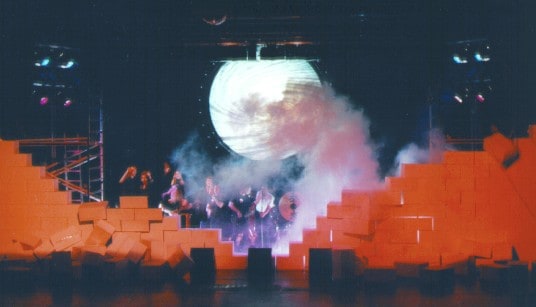
Pink Floyd were perhaps the first superstar band to lack any of the usual pop prerequisites: charisma, sex appeal, fashion-sense, danceability, rock dynamic. Instead, they wowed the natives with flying pigs, crashing planes, dazzling sound quality and, ultimately, The Wall.
Prior to the Berlin Wall gig, things weren’t looking great for Waters. He had left Floyd and attempted to launch his solo career, which failed among endless acrimony and lawsuits with the other members, who insisted – much to his chagrin – on still using the old moniker.
“We didn’t do anything to Roger,” said guitarist David Gilmour. “He sent a letter to CBS in America and EMI here saying he’d left Pink Floyd – it was quite clear and unequivocal. He didn’t tell us – we only found out when we got a copy of the letter from the record company.
“He’s done some terrible things,” said Gilmour. “Honesty is not one of the things that he will let get in the way of his pursuit of power.”
THE REAL Wall is almost gone. It looks like a mix of concrete and asbestos, and unlike Waters’ wall – constructed during the actual performance – there are no bricks in it. At the concert you can buy bits of it in a box for $45… direct from the US.
Ironically, one of the last sections remaining keeps the general public from the backstage area, where media and musos are given a respite from the heat and dust. An hour before start time, the gates are opened for safety reasons and it’s declared a free festival. More than 300,000 cram into the once-barren area.
Five minutes into the show the whole thing goes dead. Waters stands alone and exasperated on the stage, and tries a silent tapdance as a last resort. Thousands of kilowatts and not a sound.
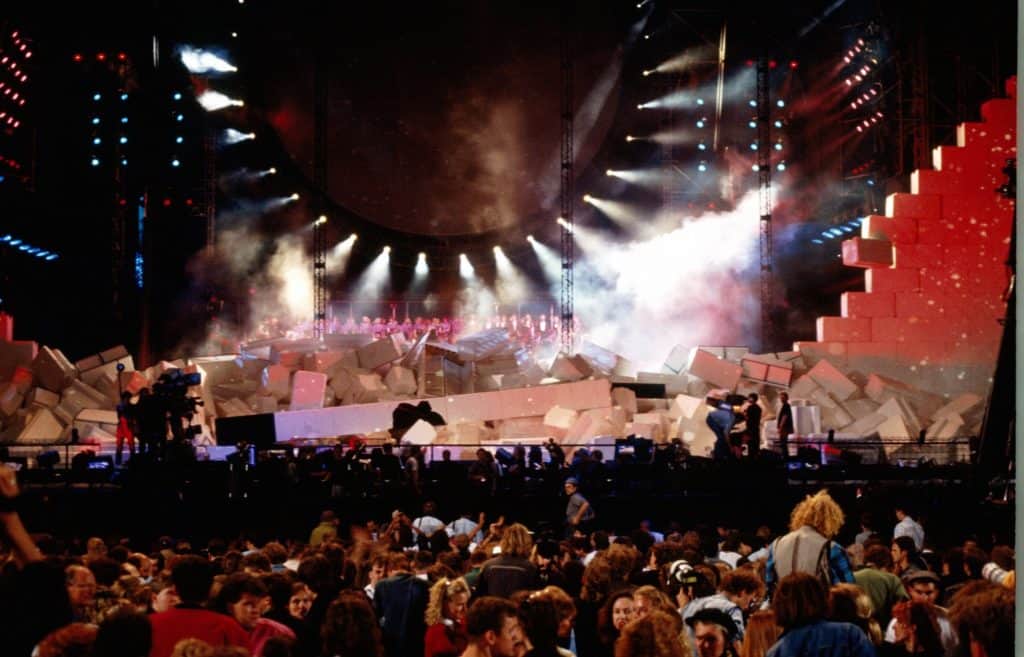
When the sound returns, two songs are skipped because the sequencing of the computers won’t allow them to backtrack. Again, during Sinead O’Connor’s breathtaking performance of ‘Mother’, the sound goes off. Happily, the television viewer will be spared the mistakes, as back-up rehearsal sequences have been inserted in the embarrassing spots.
For the crowd it’s a confusing, if spasmodically impressive, spectacle. The stage is immense: the individual players are often invisible to the naked eye, and there’s always three or four things to watch at any given point. On television the effect is quite the opposite; minute detail is provided but we’re never given any sense of the enormity of it all.
Once the wall is completed, it’s used as a colossal slide-projection screen, and the stage is like a movie lot complete with limos, army trucks, ambulances, and a cast of hundreds rushing by. Then there are Gerald Scarfe’s grotesque inflatables, perching over the wall.
Waters plays lead character Pink, whom he has acknowledged as his own nasty alter ego. Unfortunately, his singing is painfully out of tune – the singularly most embarrassing aspect of the show.
Of the bizarre all-star cast, Sinead O’Connor (‘Mother’), Joni Mitchell (‘Goodbye Blue Sky’), and Van Morrison (‘Comfortably Numb’) are brilliant, transforming the songs in the way only real interpreters can.
Bryan Adams’ macho hard rock and the Scorpions’ heavy metal are less apt, and ludicrous but entertaining are the theatrical cameos by Albert Finney as the Judge, Tim Curry as the Prosecuting Lawyer, Thomas Dolby as the Teacher and Marianne Faithfull as the Mother.
The predictable finale – the wall tumbling down spectacularly – is an anti-climax.
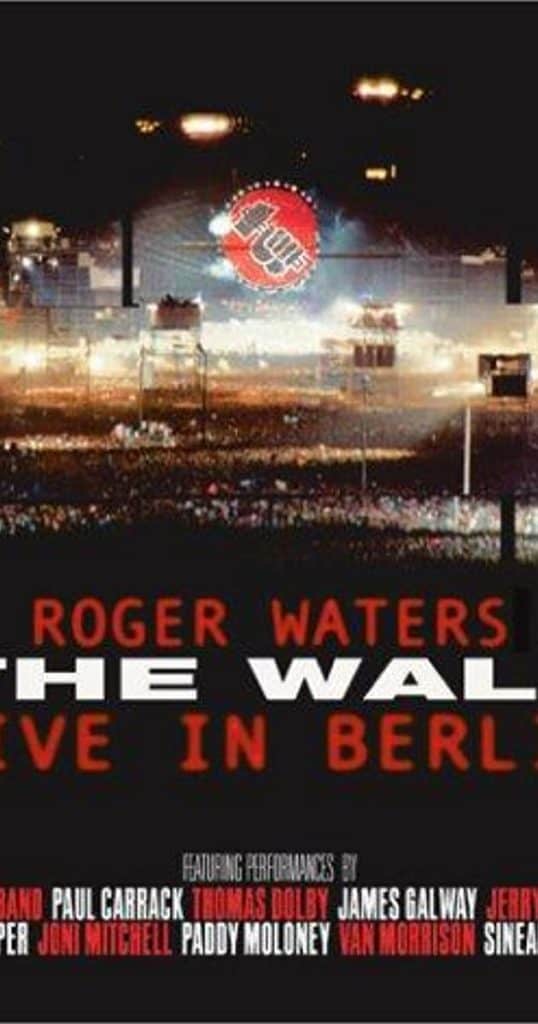
Press reaction to the show is damning. According to one review, Cheshire’s shrill whistle was the most musical note of the entire spectacular. New Musical Express calls The Wall a “monument to inflated self-pity”, and “grotesque, conceited, inept.”
NME sums up: “Waters – who can’t sing, is no showman, and whose musical and thematic pre-occupations are entirely irrelevant – really had no aesthetically legitimate claim to be figureheading this event. A musical disaster in aid of disaster relief.”
So what did the stars have to say about it? The following quotes – from an MTV news report on the concert – are revealing:
A Scorpion: “The real Wall came down but there are still a lot of walls in people’s minds.”
Waters: “It’s a strange thing about the laws of natural science – microcosms work as metaphors for larger things, and vice versa, so the walls within ourselves are the same as the walls without ourselves – the walls between people are similar in essence to the walls between nations.”
Jerry Hall: “I thought I could handle the part of the groupie, having spent lots of time around rock’n’roll groups.”
Waters again: “It’s enormous and diverse in its spectacle and very dense.”
Decide for yourself.
* This story originally appeared in the December 3, 1990 edition of the NZ Listener, and was timed for the television screening of The Wall as part of TV3’s Coca-Cola Rock’n’Coke music weekend. Ha! [And yes, I did get my own piece of the wall, directly from the crumbling remains. Anyone want to buy a souvenir?

